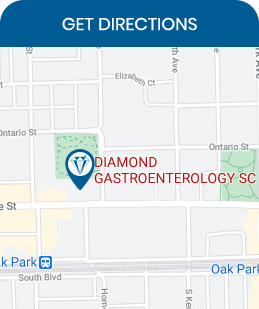Peptic Ulcer Disease Specialist Q&A
Our team of healthcare professionals at Diamond Gastroenterology is here to help treat peptic ulcer disease. Call us today or visit us online to book an appointment. We serve patients from Oak Park, IL and surrounding areas.


Additional Services We Offer
▸ Endoscopy
▸ IBS Treatment
▸ Crohn’s Disease
▸ Ulcerative Colitis
▸ Abdominal Pain
▸ Colonoscopy
▸ Rectal Bleeding
▸ Colon Cancer Screening
▸ Procedures
▸ Specialties
Additional Services We Offer
▸ Endoscopy
▸ IBS Treatment
▸ Crohn’s Disease
▸ Ulcerative Colitis
▸ Abdominal Pain
▸ Colonoscopy
▸ Rectal Bleeding
▸ Colon Cancer Screening
▸ Procedures
▸ Specialties





